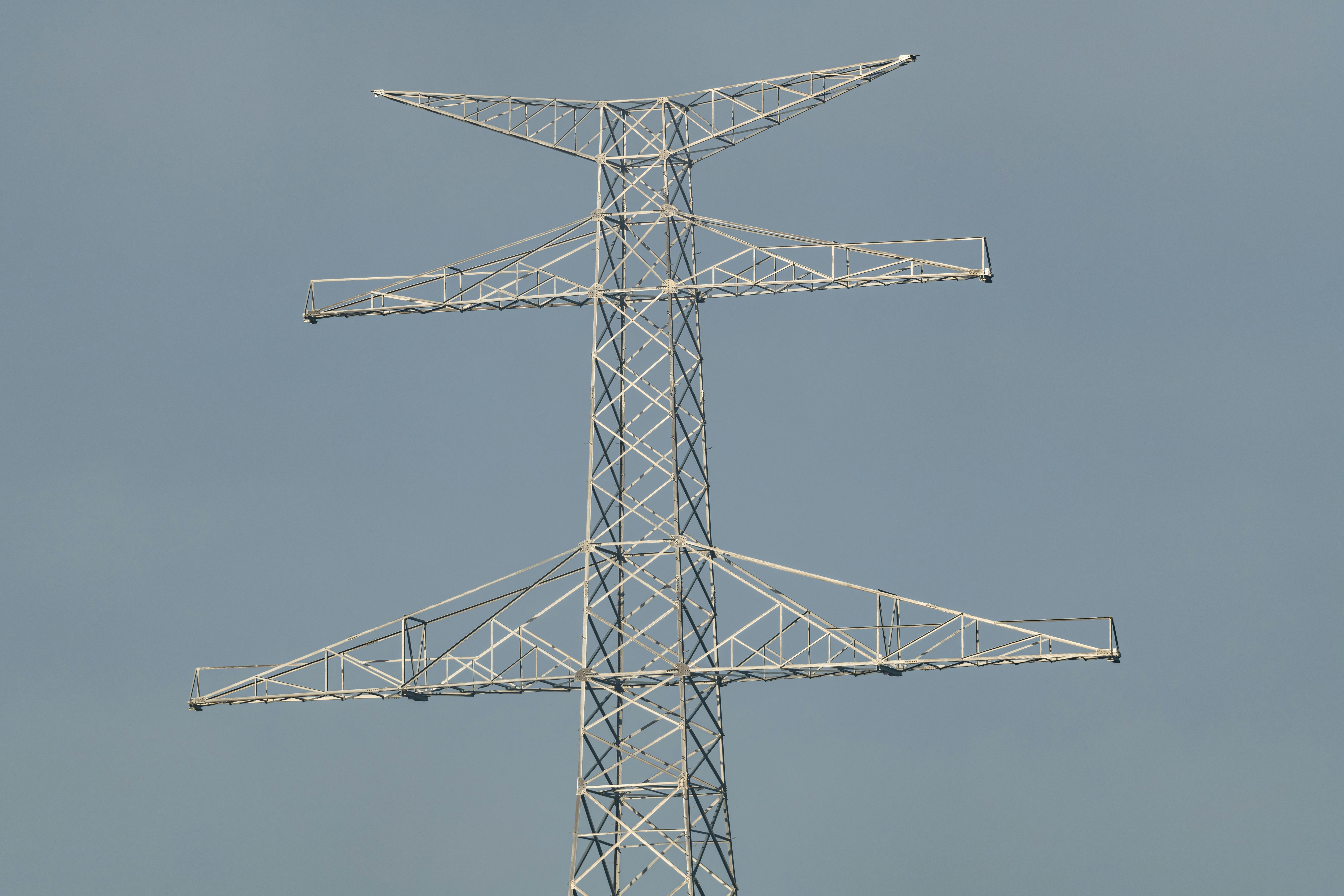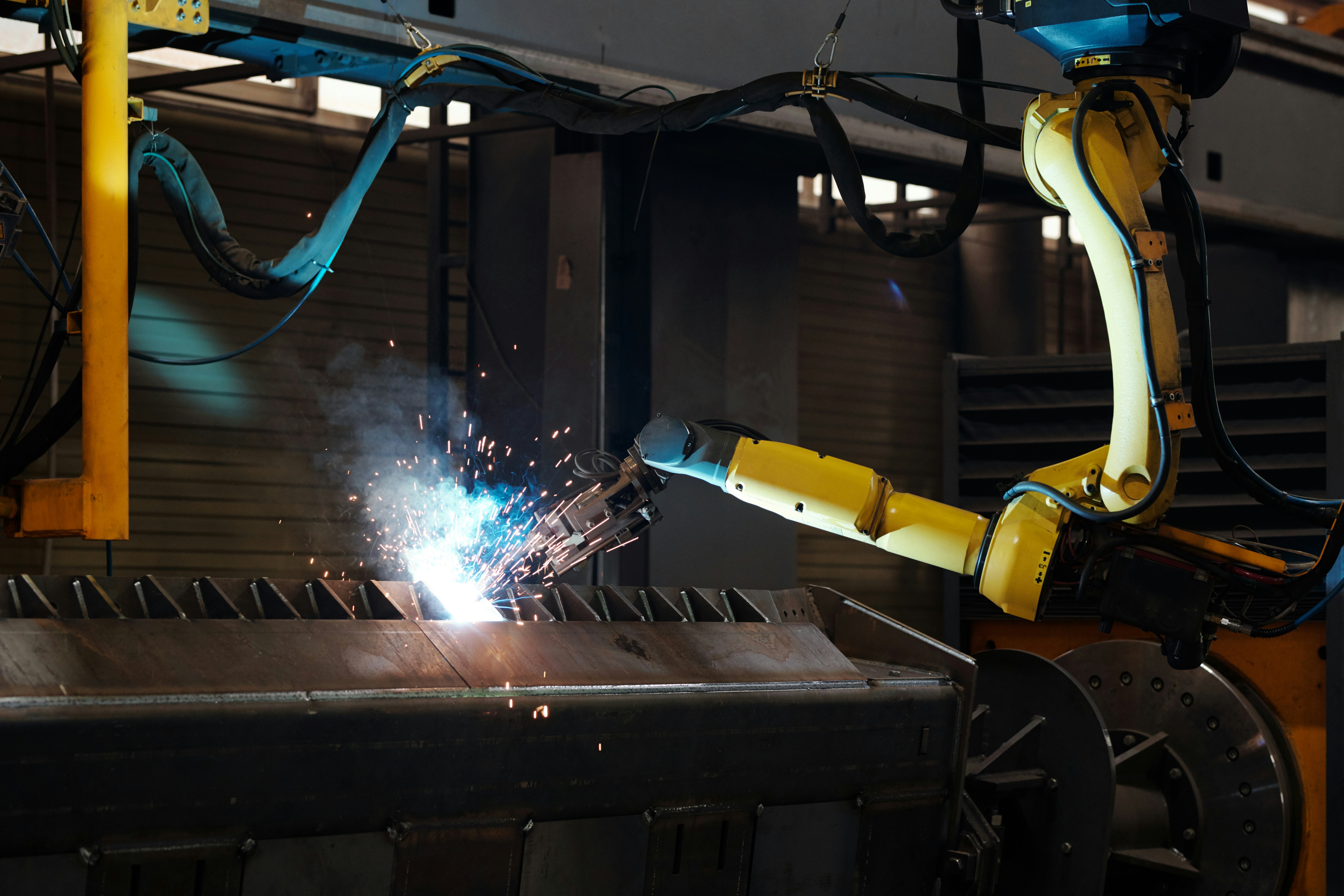Vending Machine Supplier: Your Ultimate Guide to Choosing the Best Partner for Your Business in the UK

Finding the right vending machine supplier can revolutionise your workplace refreshment strategy, turning what might be a costly challenge into a smooth and beneficial employee perk. Whether you manage a busy office, factory, or educational institution anywhere across the UK, the quality of your vending solutions greatly affects staff satisfaction and operational efficiency.
The vending industry has evolved from simple coin-operated snack dispensers to advanced, technology-driven systems offering everything from fresh food to contactless payments. Today’s leading vending machine suppliers provide comprehensive services, acting as full-service partners in your workplace catering needs.
This detailed guide covers everything you need to know about selecting the perfect vending machine supplier for your UK business. From understanding different machine types and services to evaluating costs and cutting-edge technology features, you will gain the insights necessary to make an informed choice that fits your budget and meets your staff’s refreshment expectations.
What Is a Vending Machine Supplier and Why Your UK Business Needs One
A vending machine supplier is a specialised company that offers complete vending solutions to businesses, institutions, and organisations throughout the UK. Unlike mere manufacturers, suppliers provide end-to-end services including machine supply, installation, maintenance, restocking, and ongoing customer support.
The vending ecosystem involves three main players: manufacturers who design and build machines, operators who manage daily operations, and suppliers who combine both roles. Professional vending machine suppliers manage the entire lifecycle of your vending solution, from consultation to daily maintenance and restocking.
Key Differences Between Suppliers, Operators, and Manufacturers
Understanding these roles helps you pick the right partner for your UK business:
-
Manufacturers focus on designing and producing machines, typically selling wholesale to operators.
-
Operators purchase or lease machines and handle stocking, maintenance, and cash collection.
-
Suppliers provide full-service solutions with flexible commercial arrangements, combining manufacturing and operational expertise.
Benefits of Partnering with Established UK Suppliers
Choosing professional vending machine suppliers offers several advantages:
-
Simplified Operations: Supplier-managed machines reduce your team’s workload, letting you focus on core business activities while ensuring reliable refreshment access.
-
Wide Product Range and Reliability: Established suppliers maintain partnerships with leading brands and sophisticated logistics to guarantee consistent stock availability and product variety tailored to your customers’ preferences.
-
Expert Technical Support: Professional suppliers offer specialist repair, upgrade, and payment system integration services backed by guaranteed response times.
-
Cost Savings Through Scale: Suppliers leverage economies of scale in procurement and logistics, often providing lower overall costs than self-managed solutions.
Comprehensive Service Delivery by UK Vending Suppliers
Top suppliers handle every aspect of your vending operation, including:
-
Site assessment and optimal machine placement
-
Professional installation with electrical and plumbing connections
-
Scheduled maintenance and emergency repairs
-
Automated restocking based on consumption data
-
Secure cash collection and detailed financial reporting
-
24/7 customer support and technical assistance
This full-service model ensures your vending machines operate smoothly, delivering consistent value to your UK business and staff.
Types of Vending Machines Offered by UK Suppliers

Modern UK vending suppliers provide a wide range of machines catering to diverse workplace refreshment needs. Understanding these options helps you select solutions that fit your space, budget, and customer preferences.
Hot Drinks Vending Machines
Hot drinks machines are among the most popular vending solutions across UK offices and workplaces. They feature integrated boilers, precise dispensing, and customizable beverage options.
Key Features:
-
Professional coffee grinding and brewing
-
Multiple premium tea varieties
-
Hot chocolate and speciality drinks
-
Adjustable strength, sugar, and milk options
-
Efficient cup dispensing and waste management
These machines deliver barista-quality beverages rivalling coffee shops, ideal for businesses aiming to offer premium refreshment.
Cold Drinks Machines
Cold drinks vending machines have advanced with refrigeration systems and flexible product configurations, meeting the growing demand for healthy hydration alongside traditional soft drinks.
Product Range:
-
Bottled and flavoured waters
-
Soft drinks and energy beverages
-
Fresh juices and functional drinks
-
Sports and vitamin-enhanced drinks
-
Local and premium brands
Features include intelligent inventory sensors and adjustable racks accommodating various bottle and can sizes, maximising product variety in limited spaces.
Snack Vending Machines
Modern snack vending machines have evolved with sophisticated dispensing to handle diverse packaging and minimise product damage.
Capabilities:
-
Glass-front displays for product visibility
-
Accommodate multiple packaging sizes
-
LED lighting for an attractive presentation
-
Shelf-level monitoring for stock control
-
Temperature-controlled compartments for sensitive snacks
These machines stock everything from confectionery and crisps to healthy options like protein bars and organic snacks, supporting workplace wellness.
Food Vending Machines
Fresh food vending is a fast-growing segment driven by demand for convenient, quality meals. These machines require precise temperature control and inventory management to ensure food safety.
Advanced Features:
-
Multi-temperature zones for different products
-
Inventory rotation for freshness
-
Food hygiene compliance monitoring
-
Fresh sandwiches, salads, and wraps
-
Microwave-ready and hot food options
Some machines include built-in microwaves or warming units, offering complete meal solutions for busy UK workplaces.
Combined and Space-Efficient Machines
Combined machines integrate multiple product categories in one unit, ideal for locations with limited space or moderate foot traffic.
Benefits:
-
Dual climate zones for hot and cold items
-
Broad product mix in minimal space
-
Cost-effective for smaller workplaces
-
Simplified maintenance
Common in offices, schools, and transport hubs where space optimisation is key.
Specialised and Emerging Vending Solutions
UK suppliers also offer specialised vending beyond traditional refreshments:
-
Water Coolers: Hot and cold filtered water dispensers
-
Micro-Markets: Self-checkout open-access marketplaces
-
Industrial Vending: PPE and tool dispensing for manufacturing
-
Premium Coffee Machines: Espresso machines for executive areas
These solutions showcase vending technology’s evolution to meet specific workplace and industry needs.
Key Services Provided by UK Vending Machine Suppliers
Professional UK vending suppliers differentiate themselves with comprehensive services, ensuring efficient operations and consistent value.
Installation and Setup
Expert installation optimises machine placement and integrates vending systems with your workplace infrastructure.
Installation Includes:
-
Site surveys for optimal locations
-
Delivery and positioning
-
Electrical and plumbing connections
-
Payment system setup and testing
-
Staff training on the operation
Technicians consider foot traffic, power needs, and accessibility to maximise usage and safety.
Maintenance, Cleaning, and Repairs
Scheduled maintenance ensures machines perform reliably and comply with health standards.
Service Features:
-
Preventive maintenance for mechanical and refrigeration systems
-
Thorough cleaning and sanitisation
-
Same-day response for critical faults
-
Rapid parts replacement and repairs
-
Compliance with food safety regulations
Remote monitoring and diagnostics help prevent downtime.
Product Restocking and Inventory Management
Effective restocking keeps machines stocked with popular items while minimising waste.
Inventory Services:
-
Automated restocking based on sales data
-
Product rotation for freshness
-
Seasonal and promotional updates
-
Customer preference analysis
-
Emergency restocking during high demand
Advanced analytics optimise stock levels and product mix.
Cash Collection and Revenue Management
For revenue-sharing or financial reporting needs, suppliers offer secure cash handling and detailed sales data.
Financial Services:
-
Secure cash transport
-
Sales reporting and reconciliation
-
Digital payment processing
-
Revenue sharing calculations
-
Performance analytics
Transparent reporting aids vending performance management.
24/7 Customer Support
Continuous support ensures rapid issue resolution and high service levels.
Support Includes:
-
Round-the-clock helpdesk
-
Remote troubleshooting
-
On-site technical visits
-
Complaint resolution
-
Proactive maintenance scheduling
Fast response minimises downtime and keeps staff satisfied.
Flexible Commercial Terms
UK suppliers offer varied commercial models to suit different budgets and needs.
Options:
-
Monthly rentals with service packages
-
Lease-to-own agreements
-
Outright purchases with service contracts
-
Revenue-sharing models
-
No-contract monthly memberships
These options provide flexibility and scalability.
Industries Served by UK Vending Machine Suppliers
Vending suppliers cater to diverse UK sectors, each with unique refreshment needs.
Offices and Corporate Environments
Corporate vending enhances employee satisfaction, reduces break times, and supports hospitality.
Manufacturing and Industrial Sites
Robust machines for harsh conditions, 24/7 operation, and PPE dispensing.
Healthcare Facilities
Hygienic, 24/7 vending with healthy options and quiet operation.
Educational Institutions
Age-appropriate products, nutrition compliance, and durable machines.
Hospitality and Leisure
Premium selections for hotels, gyms, and entertainment venues.
Retail and Public Spaces
High-capacity, secure machines with diverse product ranges.
Choosing the Right UK Vending Machine Supplier
Evaluate suppliers based on:
-
Experience and reputation (minimum 20 years preferred)
-
Geographic coverage and local support
-
Range of machines and product partnerships
-
Service level agreements and performance standards
-
Contract flexibility
-
Technology features like contactless payments and remote monitoring
-
Sustainability credentials
Modern Vending Technology and Features
UK vending machines now include:
-
Contactless payments (NFC, mobile wallets)
-
Touchscreen interfaces with product info
-
Multi-item purchase baskets
-
Remote monitoring and telemetry
-
Energy-efficient designs (A+ ratings)
-
Emerging tech like dynamic pricing and voice interaction
Costs and Payment Options
Common UK pricing models:
-
Rental agreements (£50-150/month per machine)
-
Lease-to-own (2-5 year terms)
-
Outright purchase (£2,000+ per machine)
-
Revenue sharing (15-25% of sales)
-
Special rates for schools, charities, and non-profits
Flexible and no-contract options are increasingly popular.
Environmental and Sustainability Considerations
UK suppliers prioritise:
-
Energy-efficient machines with A+ ratings
-
Sustainable product sourcing and packaging
-
Water-saving features
-
Waste reduction and recycling programs
-
Transparent environmental reporting
-
Optimised logistics to reduce transport emissions
By choosing a reputable UK vending machine supplier with advanced technology, flexible commercial options, and strong sustainability credentials, your business can deliver exceptional refreshment solutions that enhance employee wellbeing, support operational efficiency, and align with corporate responsibility goals. Take the time to research, compare, and select a supplier that fits your unique needs for a successful vending partnership.
Complete Guide to Outsourcing Graphic Design Services
Understanding Graphic Design Outsourcing
Graphic design outsourcing involves hiring external professionals, agencies, or freelancers to handle your visual design needs instead of maintaining an in-house design team. This strategic approach allows businesses to access specialized expertise, reduce costs, and scale their design capabilities as needed.
Key Benefits of Outsourcing
- Cost efficiency: Lower overhead compared to full-time employees
- Access to specialized skills: Tap into expertise you may not have internally
- Scalability: Easily adjust resources based on project demands
- Fresh perspectives: External viewpoints can bring innovative solutions
- Time savings: Focus on core business activities while experts handle design
- Latest tools and technologies: Outsourced teams often have access to premium software
Potential Drawbacks
- Communication challenges: Language barriers and time zone differences
- Quality control: Less direct oversight than in-house teams
- Brand consistency: Risk of inconsistent brand representation
- Confidentiality concerns: Sharing sensitive information with external parties
- Dependency: Reliance on external partners for critical business functions
When to Outsource Graphic Design
Ideal Scenarios for Outsourcing
- Limited budget: Cannot afford full-time design staff
- Seasonal projects: Periodic spikes in design needs
- Specialized requirements: Need expertise in specific design areas
- Quick turnaround: Urgent projects requiring immediate attention
- Testing new markets: Exploring design styles before committing internally
- Small businesses: Lack resources for dedicated design team
When to Keep Design In-House
- Heavy daily design needs: Consistent, high-volume requirements
- Strict brand control: Need tight oversight of brand representation
- Highly confidential projects: Sensitive information that cannot be shared
- Complex ongoing projects: Long-term initiatives requiring deep company knowledge
- Strong internal capabilities: Existing team with adequate skills and capacity
Types of Graphic Design Services
Brand Identity and Logo Design
- Logo creation and refinement
- Brand guidelines development
- Colour palette and typography selection
- Brand asset creation (business cards, letterheads, etc.)
Marketing and Advertising Materials
- Print advertisements and brochures
- Digital marketing assets
- Social media graphics
- Email marketing templates
- Trade show displays and banners
Web and Digital Design
- Website design and UI/UX
- Mobile app interfaces
- Digital illustrations
- Icon design
- Interactive graphics
Publication Design
- Annual reports and white papers
- Magazines and newsletters
- Book layouts and covers
- Catalogs and product sheets
Packaging Design
- Product packaging concepts
- Label design
- Point-of-purchase displays
- Packaging prototyping
Motion Graphics and Video
- Animated logos and graphics
- Video editing and production
- Presentation templates
- Interactive media
Outsourcing Models
Freelance Designers
Pros: Cost-effective, flexible, direct communication, specialized skills
Cons: Limited availability, potential reliability issues, single point of failure
Best for: Small projects, specific expertise needs, budget-conscious businesses
Design Agencies
Pros: Full-service capabilities, established processes, team redundancy, strategic thinking
Cons: Higher costs, less flexibility, potential over-servicing
Best for: Large projects, comprehensive campaigns, long-term partnerships
Online Design Platforms
Pros: Quick turnaround, competitive pricing, large talent pool, easy comparison
Cons: Variable quality, limited relationship building, less strategic input
Best for: Simple projects, quick solutions, testing multiple concepts
Offshore Design Studios
Pros: Significant cost savings, dedicated teams, scalable resources
Cons: Communication challenges, time zone differences, cultural barriers Best for: High-volume work, cost-sensitive projects, routine design tasks
Hybrid Models
Pros: Combines benefits of multiple approaches, flexible resource allocation
Cons: More complex management, potential coordination issues
Best for: Diverse design needs, varying project complexities
Finding the Right Design Partner
Research Methods
Portfolio Review: Examine previous work quality, style consistency, and relevance to your industry Client References: Contact past clients to understand working relationships and satisfaction levels Industry Expertise: Look for experience in your specific sector or similar businesses Technical Capabilities: Ensure they have the right tools and skills for your projects Awards and Recognition: Industry accolades can indicate quality and creativity
Key Selection Criteria
Creative Capability: Ability to produce innovative, high-quality designs Technical Proficiency: Expertise with relevant software and technologies Communication Skills: Clear, responsive, and professional interaction Project Management: Organized approach to timelines, deliverables, and feedback Cultural Fit: Compatible working styles and values Scalability: Ability to handle your current and future needs
Where to Find Partners
- Professional design associations and directories
- Industry publications and award sites
- Referrals from business networks
- Online freelance platforms
- Design agencies in your region
- Social media and professional networks
Evaluating Potential Partners
Portfolio Assessment
Quality Indicators: Professional finish, attention to detail, technical execution Style Versatility: Ability to adapt to different brand personalities and requirements Problem-Solving: Evidence of strategic thinking and creative solutions Relevance: Experience with similar projects or industries Innovation: Fresh approaches and creative thinking
Capability Evaluation
Technical Skills: Proficiency with industry-standard software and emerging technologies Process Maturity: Established workflows for project management and quality control Team Structure: Understanding of roles, responsibilities, and backup resources Capacity: Ability to handle your project volume and timeline requirements Specializations: Expertise in specific areas relevant to your needs
Reference Checks
Project Outcomes: Success metrics and client satisfaction levels Working Relationship: Communication effectiveness and collaboration quality Reliability: Meeting deadlines and managing expectations Problem Resolution: How challenges were addressed and resolved Value Delivery: Cost-effectiveness and return on investment
Project Planning and Brief Creation
Essential Brief Components
Project Overview: Clear description of what needs to be designed and why Objectives: Specific goals the design should achieve Target Audience: Detailed demographics and psychographics Brand Guidelines: Existing standards and requirements to follow Technical Specifications: Size, format, resolution, and platform requirements Timeline: Key milestones and final deadline Budget: Available resources and payment terms
Defining Success Metrics
Quantitative Measures: Click-through rates, conversion rates, engagement metrics Qualitative Measures: Brand perception, aesthetic appeal, user experience Business Impact: Sales increases, lead generation, market response Process Metrics: Timeline adherence, budget compliance, revision cycles
Stakeholder Alignment
Decision Makers: Identify who has final approval authority Input Providers: Determine who needs to review and provide feedback Communication Channels: Establish how information will flow Approval Process: Define steps for review and sign-off Change Management: Procedures for handling scope changes
Communication and Collaboration
Establishing Communication Protocols
Primary Channels: Email, project management tools, video calls, instant messaging Response Times: Expected turnaround for different types of communication Meeting Schedules: Regular check-ins and milestone reviews Documentation: How decisions and changes will be recorded Escalation Procedures: Steps for addressing urgent issues or conflicts
Project Management Tools
Collaboration Platforms: Slack, Microsoft Teams, Asana, Trello File Sharing: Google Drive, Dropbox, OneDrive, WeTransfer Design Review Tools: InVision, Figma, Adobe Creative Cloud, Conceptboard Time Tracking: Harvest, Toggl, RescueTime Communication Tools: Zoom, Skype, Google Meet
Cultural Considerations
Time Zones: Planning meetings and deadlines across different regions Language: Ensuring clear communication and understanding Work Styles: Adapting to different professional approaches Holidays and Schedules: Respecting different calendar systems Business Practices: Understanding cultural norms and expectations
Quality Control and Feedback
Review Process Structure
Initial Concepts: Early-stage review of creative directions Design Development: Detailed feedback on specific elements Final Review: Comprehensive check before approval Technical Review: Verification of specifications and deliverables Brand Compliance: Ensuring adherence to brand guidelines
Providing Effective Feedback
Be Specific: Point out exact elements that need attention Explain the Why: Provide context for requested changes Prioritize Issues: Distinguish between critical and nice-to-have changes Consolidate Input: Gather all stakeholder feedback before sharing Use Visual References: Provide examples of desired outcomes Stay Objective: Focus on business objectives rather than personal preferences
Managing Revisions
Revision Limits: Establish clear boundaries on included changes Change Documentation: Track all requested modifications Timeline Impact: Understand how changes affect project schedules Cost Implications: Know when additional charges may apply Final Approval: Ensure all stakeholders sign off on completed work
Pricing and Budget Management
Pricing Models
Fixed Price: Set cost for defined scope and deliverables Hourly Rate: Payment based on time invested Retainer: Ongoing monthly fee for continued services Per-Project: Individual pricing for each assignment Value-Based: Pricing tied to business impact or results
Cost Factors
Project Complexity: Scope, requirements, and technical difficulty Timeline: Rush jobs typically cost more Revisions: Number of changes and iterations Usage Rights: Scope of how designs will be used Geographic Location: Regional differences in rates Experience Level: Senior designers command higher fees
Budget Planning
Total Project Cost: Include all phases and potential extras Contingency: Reserve 10-20% for unexpected changes Payment Schedule: Align with project milestones Additional Services: Budget for potential add-ons Ongoing Needs: Consider future design requirements
Cost Optimization Strategies
Clear Scope Definition: Reduce revisions through detailed briefs Batch Projects: Combine multiple needs for efficiency Standard Formats: Use templates and established sizes Early Feedback: Prevent costly late-stage changes Long-term Partnerships: Negotiate better rates for ongoing work
Legal and Contractual Considerations
Essential Contract Elements
Scope of Work: Detailed description of deliverables Timeline: Project milestones and final delivery dates Payment Terms: Rates, schedule, and late payment policies Intellectual Property: Ownership and usage rights Confidentiality: Protection of sensitive information Termination Clauses: Conditions for ending the relationship
Intellectual Property Rights
Work for Hire: Client owns all rights to created designs License Agreement: Designer retains ownership but grants usage rights Shared Rights: Both parties have certain usage permissions Portfolio Rights: Designer’s ability to showcase the work Derivative Works: Rights to modify or build upon original designs
Confidentiality and NDAs
Information Protection: Safeguarding proprietary business data Non-Disclosure Terms: Legal obligations for information security Duration: How long confidentiality requirements last Exceptions: Information that doesn’t require protection Remedies: Consequences for confidentiality breaches
Liability and Insurance
Professional Liability: Coverage for design errors or omissions General Liability: Protection against various business risks Limitation of Liability: Caps on potential damage claims Indemnification: Protection against third-party claims Force Majeure: Provisions for uncontrollable circumstances
Common Challenges and Solutions
Communication Issues
Challenge: Misunderstandings due to unclear requirements Solution: Develop detailed briefs and use visual references
Challenge: Time zone differences affecting collaboration Solution: Establish overlapping hours and use asynchronous tools
Challenge: Language barriers impacting project quality Solution: Use simple, clear language and confirm understanding
Quality Control Problems
Challenge: Designs not meeting brand standards Solution: Provide comprehensive brand guidelines and examples
Challenge: Multiple revision cycles extending timelines Solution: Set clear revision limits and consolidate feedback
Challenge: Inconsistent design quality across projects Solution: Establish quality checklists and review processes
Project Management Difficulties
Challenge: Missing deadlines and milestones Solution: Use project management tools and regular check-ins
Challenge: Scope creep increasing costs Solution: Define clear scope boundaries and change procedures
Challenge: Poor file organization and version control Solution: Establish naming conventions and file management systems
Best Practices for Success
Pre-Project Preparation
Define Clear Objectives: Establish specific, measurable goals Prepare Comprehensive Briefs: Include all necessary information Set Realistic Timelines: Allow adequate time for quality work Establish Communication Protocols: Define how you’ll interact Align Internal Stakeholders: Ensure everyone understands the project
During Project Execution
Maintain Regular Communication: Schedule consistent check-ins Provide Timely Feedback: Don’t delay the review process Stay Flexible: Be open to creative suggestions and improvements Document Decisions: Keep records of important choices Monitor Progress: Track milestones and deliverables
Building Long-term Relationships
Treat Partners as Collaborators: Value their expertise and input Provide Fair Compensation: Pay competitive rates promptly Offer Constructive Feedback: Help partners improve their service Plan for Future Needs: Discuss upcoming projects and requirements Celebrate Successes: Acknowledge good work and achievements
Continuous Improvement
Evaluate Project Outcomes: Assess success against objectives
Gather Stakeholder Feedback: Learn from team experiences
Refine Processes: Improve briefing and review procedures
Update Partner Criteria: Evolve selection standards over time Stay Current: Keep up with design trends and technologies
Risk Management
Maintain Multiple Relationships: Don’t rely on single providers Have Backup Plans: Prepare for partner unavailability Protect Intellectual Property: Ensure proper contracts and NDAs Monitor Quality Consistently: Don’t let standards slip over time Plan for Growth: Ensure partners can scale with your needs
Outsourcing graphic design services can be a powerful strategy for businesses looking to access professional design expertise while managing costs and maintaining flexibility. Success depends on careful partner selection, clear communication, well-defined processes, and strong relationship management.
The key to effective design outsourcing lies in treating external partners as strategic collaborators rather than simple vendors. By investing time in finding the right partners, establishing clear processes, and building strong working relationships, businesses can achieve excellent design outcomes while focusing on their core competencies.
Remember that outsourcing is not just about cost savings—it’s about accessing specialized expertise, gaining fresh perspectives, and building scalable design capabilities that can grow with your business. With proper planning and execution, outsourced graphic design services can become a valuable component of your overall business strategy.
What is a Bunkering Hose?
What is a Bunkering Hose?
A bunkering hose is a special type of hose for fuel transfer, mainly used in maritime industry. It’s part of the bunkering process of ships. Bunkering is the transfer of fuel from storage tanks, either onshore or from a bunker barge to the fuel tanks of a ship. Since the material being transferred is hazardous, bunkering hoses must meet safety and performance standards. For more information related to bunkering and offshore fluid transfer, visit offshoremarinehoses.com.
Bunkering Hoses Features
Durable and Flexible Materials
Bunkering hoses are made from high quality, robust materials that can withstand harsh marine environment. Common materials are synthetic rubber and composite materials that are abrasion, weathering and chemical resistant.
Although durable, these hoses are still flexible to allow easy handling and maneuvering during fuel transfer. Many bunkering hoses are reinforced with multiple layers of high tensile strength fabric or steel wire to add structural integrity and pressure resistance.
Standards
Standards compliance is an important aspect of bunkering hoses. They must comply to international standards such as ISO, BS EN and others specific to maritime industry. These standards ensure the hoses can handle pressure, temperature and chemical properties of marine fuels.
Also bunkering hoses require certification from recognized bodies like American Bureau of Shipping (ABS) or International Maritime Organization (IMO) to prove their suitability for use.
Specialized Design
Design considerations for bunkering hoses are length and diameter which varies for different types of vessels and fuel transfer rates. The hoses have specialized end fittings such as flanges or quick release couplings to ensure secure and leak proof connections.
The inner lining of the hose is smooth to reduce friction and wear during fuel transfer and resistant to the specific fuels being transferred to prevent degradation.
Bunkering Hoses Types
There are several types of bunkering hoses for different applications.
-
Rubber bunkering hoses: the most common type, durable and flexible. Suitable for heavy oils, diesel and other fuels.
-
Composite bunkering hoses: made from multiple layers of polymer films and fabrics, lightweight and strong. Suitable for aggressive chemicals and fuels due to its excellent chemical resistance.
-
Cryogenic bunkering hoses: for LNG or other cryogenic fuels transfer. These hoses can handle extremely low temperature without losing flexibility or integrity.
Bunkering Hoses Applications
Bunkering hoses are used in various applications, ship-to-ship (STS) transfers, ship-to-shore (STS) transfers and bunker barge operations.
In ship-to-ship transfers, bunkering hoses are used to transfer fuel between vessels, often in open sea. These require hoses that can handle the dynamic movement of both vessels.
In ship-to-shore transfers, bunkering hoses are used when refueling vessels at port facilities. The hoses must connect to both the ship’s fuel intake and onshore storage facility.
Bunker barge operations use bunkering hoses to supply fuel to anchored ships. The hoses must be versatile and durable to withstand frequent use and varying environmental conditions.
Safety and Maintenance
To ensure safety and longevity of bunkering hoses, regular inspection, proper storage and handling is required.
Regular inspection and pressure testing is necessary to ensure the hoses are in good condition and meet safety standards. Inspection check for wear, abrasion and leaks.
When not in use, bunkering hoses should be stored in a cool, dry place away from direct sunlight and chemicals to prevent degradation. Proper coiling and support can prevent kinking and damage.
After use, hoses should be drained and cleaned to prevent fuel residue from causing damage or safety hazards. Handling should minimize twisting and bending to extend the life of the hose.
Summary
Bunkering hoses are an important part of the maritime industry, fuel transfer to ships safely and efficiently. Their design, material and compliance to standards makes them suitable for marine fuel transfer. Maintenance, handling and compliance to safety regulations is key to extend the life and reliability of the hoses so global maritime logistics can run smoothly.
What Does a Locksmith Do? A Guide
Locksmiths are experts in handling locks and keys. Their services range from emergency lockout assistance to increasing home security measures. Here’s an easy-to-read guide that explains their purpose and what you should expect when you hire one. For a reliable locksmith service in Cardiff, visit thelocksmithcardiff.co.uk.
Locksmith Services
Lockout Assistance
One of the primary reasons people contact locksmiths is when they are locked out of their home, car, or office. Locksmiths have all of the tools and expertise to quickly gain entry without damaging the property – as well as creating keys on-the-spot if needed!
Lock Installation and Repair
Whether you are moving into a new home, upgrading your security measures, or simply looking to add locks for greater peace of mind, locksmiths can install new locks and repair damaged or malfunctioning ones, saving you the cost of fully replacing locks. Locksmiths specialise in deadbolts, mortise locks and electronic smart locks.
Key Duplication and Rekeying
Locksmiths provide key duplication services for virtually every type of lock imaginable – from simple door keys to more intricate high-security lock keys. They also specialise in rekeying existing locks so they work with new keys. This service is particularly handy if copies of your key have been stolen or gone missing.
Enhancing Security
Locksmiths can assess your property’s security needs and recommend upgrades that make sure it’s secure and protected. This might include installing higher grade locks or adding security bars on windows; for businesses this might mean setting up an access control system or shutters to keep the business secure.
Safe Installation
For those that need to protect valuable possessions or sensitive documents, locksmiths can install a secure safe for you. They can help choose an ideal safe based on your individual security needs and install it securely to protect your valuables.
Automotive Services
Locksmiths also specialise in vehicle lock and key issues, such as cutting new keys or repairing existing locks. They can also programme key fobs/transponder keys to work with your vehicle if the old one is lost or broken, or safely gain access to a locked vehicle without causing damage.
Why Hire a Locksmith?
Professionalism and Expertise
Locksmiths are professionals with expert knowledge of locks and security systems. They understand how to best solve tricky lockout situations without damaging your property in any way. It’s important to involve a locksmith when faced with a lockout situation, as these experts know exactly how to respond and regain access.
Convenience
Many locksmiths offer 24-hour emergency services to make themselves available when an unexpected incident strikes, like being locked out in the middle of the night. This service is especially handy during those stressful and unpredictable hours when there’s an urgent situation.
Security
Hiring a reliable locksmith means your issue will be quickly resolved, but they can also provide invaluable advice about increasing your security to avoid future concerns.
Conclusion
Locksmiths play an invaluable role in safeguarding homes, businesses and vehicles alike. From an unexpected lockout situation to upgrading your locks or providing other related services quickly and effectively, locksmiths have you covered for every scenario related to locks and keys. For this reason, keeping their contact info on hand; it may prove very helpful when you are faced with a lock related emergency.
Choosing the Right Geo-Environmental Solutions for Infrastructure Projects
Building a new infrastructure project is like assembling a jigsaw puzzle. Each piece, from design to construction, plays a critical role. But what about the pieces that lie beneath the surface? Geo-environmental solutions are just as crucial in ensuring the success and longevity of your project. These solutions address the complex interactions between the earth and its environment, and they play a pivotal role in infrastructure projects. From small-scale residential developments to large, complicated schemes, understanding the geo-environmental aspects can significantly impact the cost, timeline, and overall success of your project. In this article, we delve into the world of geo-environmental solutions for infrastructure projects, discussing their importance, key considerations, and how to choose the most suitable solutions for your needs.

Understanding Geo-Environmental Solutions
Definition and Importance of Geo-Environmental Solutions
When embarking on any construction project, one of the key considerations is the natural environment of the construction site. Geo-environmental solutions play a critical role in assessing and managing the environmental risks associated with the geology, soil, and groundwater characteristics of the site. These solutions encompass a wide range of services, from soil and groundwater investigations to contamination assessments and environmental data analytics.
But why are these solutions important? Geo-environmental solutions provide the essential data needed to make informed decisions about the design, construction, and long-term management of a project. They guide us in understanding the potential environmental impacts of a project, helping to mitigate risks and prevent costly delays or remediation measures down the line.
The Role of Geo-Environmental Solutions in Infrastructure Projects
In the context of infrastructure projects, geo-environmental solutions serve a multi-faceted role. They help determine the suitability of a site for construction, inform the design process, and aid in the management of environmental risks throughout the lifecycle of the project.
For instance, a geo-environmental assessment can uncover potential issues such as soil contamination, groundwater issues, or unstable ground conditions, which can significantly impact the feasibility and cost of a project. Furthermore, these solutions play a key role in ensuring compliance with environmental regulations and standards, which is crucial for any infrastructure project.
On a more granular level, solutions such as real-time environmental data analytics can provide invaluable insights into site conditions, enabling project managers to make data-driven decisions and respond swiftly to any changes or anomalies.
In essence, geo-environmental solutions are not just a box to tick in the project planning phase. They are an integral part of the project’s success, ensuring that infrastructure is built sustainably, safely, and in harmony with the surrounding environment.

Key Considerations in Choosing Geo-Environmental Solutions
Navigating the complex terrain of geo-environmental solutions is no small task. As a construction project manager, you know the importance of making informed decisions that align with the specific requirements of your project. Here are some key factors to consider when choosing the right geo-environmental solutions for your infrastructure projects.
Understanding the Project’s Geo-Environmental Needs
Every project is unique, with its own set of geo-environmental challenges. Whether it’s managing soil contamination, assessing ground stability, or monitoring groundwater levels, understanding your project’s specific needs is the first step in choosing the right solution. This involves a comprehensive geotechnical and environmental assessment.
Evaluating the Cost and Complexity of Geo-Environmental Solutions
While it’s essential to meet environmental obligations and project requirements, you can’t ignore the cost issue. The right geo-environmental solution should not only be effective but also cost-efficient. It should reduce the complexity of getting data online and equip the project for future telemetry and software requirements without breaking the bank.
Considering the Environmental Sensitivity of the Project Site
The location of your project plays a crucial role in determining the type of geo-environmental solution needed. Factors like the site’s environmental sensitivity, remoteness, and the scale of the area to be monitored must be considered. The chosen solution should be able to function effectively in the specific environmental conditions of the project site.
Assessing the Compatibility of Geo-Environmental Solutions with Existing Infrastructure
If your project involves working around existing infrastructure, compatibility becomes a key concern. For instance, if you have previously installed vibrating wire piezometers (VWPs) of various brands, you’ll need a flexible data-logging solution that is compatible with different VWP brands. The solution should be able to be operated manually and easily converted to remote telemetry without the need for additional, expensive hardware.
In conclusion, choosing the right geo-environmental solution requires a holistic understanding of your project’s needs, the environmental context, and the capabilities of the available solutions. By carefully considering these factors, you can ensure that your project is built sustainably, safely, and harmoniously with the surrounding environment.

The Role of IBEX Consulting Engineers in Providing Geo-Environmental Solutions
Choosing the right geo-environmental solutions for your infrastructure project is no small feat. It requires expert knowledge, innovative solutions, and a team that understands the complexities of your project. This is where IBEX Consulting Engineers come into play.
Overview of IBEX Consulting Engineers
IBEX Consulting Engineers are specialists in geotechnical and geo-environmental services within the infrastructure industry across the United Kingdom. Founded in 2021, IBEX has quickly established itself as a reliable partner in providing cost-effective and robust ground investigations for a wide range of projects. From small-scale residential developments to large, complicated schemes, IBEX delivers tailored solutions that meet the unique needs of each project.
IBEX’s Unique Selling Point: Cost-Effective and Robust Solutions
What sets IBEX apart is their commitment to reducing the cost and complexity of data acquisition and analysis. They work with advanced tech solutions like Ambilytics, a platform that offers real-time environmental data analytics. This tool enables them to monitor the geo-environmental conditions of project sites remotely, which minimises the number of site visits, thereby reducing costs and complexity.
Moreover, their collaborative approach with Metasphere in designing connectivity solutions for hundreds of locations across extended sites has proven to be a game-changer. By making data accessible in real-time to large teams on a single data repository, they’ve streamlined the process, making it easier for project managers to make informed decisions.
Case Study: Successful Geo-Environmental Solutions Implemented by IBEX
One of the most significant achievements of IBEX was their work on two large infrastructure projects in the UK. They were tasked with reducing the cost and complexity of getting data online while preparing the projects for future telemetry and software requirements. Despite the challenges posed by the remote location and the environmentally sensitive nature of the sites, IBEX successfully implemented geo-environmental monitoring solutions that were low cost, wireless, easy to install, and capable of transmitting data automatically, securely, and reliably.
This case study serves as a testament to IBEX’s commitment to delivering tailored geo-environmental solutions that not only meet but exceed the expectations of their clients. By choosing IBEX Consulting Engineers for your infrastructure project, you’re choosing a partner who will go above and beyond to ensure the success of your project.
The Future of Geo-Environmental Solutions in Infrastructure Projects
As technology continues to advance at an unprecedented pace, geo-environmental solutions for infrastructure projects are no exception. They are evolving alongside, offering innovative, data-driven, and cost-effective solutions for complex challenges on large-scale projects.
The Impact of Technology on Geo-Environmental Solutions
The advent of technology has significantly revolutionized the way geo-environmental solutions are designed and implemented. Integrated software systems now enable the real-time tracking of data from hundreds of locations across vast project sites. These cutting-edge solutions are not only wireless but also easy to install and calibrate, offering secure and reliable data transmission.
Particularly, the use of brand-agnostic telemetry solutions has become a game-changer in the industry. These solutions are compatible with a wide array of geotechnical and environmental monitoring instrumentation, from vibrating wire piezometers to water quality and water level loggers. This flexibility not only reduces the cost but also simplifies the complexity of getting data online and equipping projects for future telemetry and software requirements.
The Importance of Real-Time Data and Machine Learning in Geo-Environmental Solutions
In an era where data is king, the importance of real-time data and machine learning in geo-environmental solutions cannot be understated. Advanced data analytics platforms like Ambilytics are now being leveraged to gather, clean, and display data from remotely deployed geo-environmental field devices.
This platform combines the real-time data with contextual data sources like weather conditions to provide a comprehensive view of the entire data pool. This enables project managers to spot every change and anomaly in full context, thus enhancing their ability to react quickly and make data-driven decisions.
Moreover, machine learning-driven analytics are being used to provide deep data insights at the touch of a button. This eliminates the need for spending days cleaning and analyzing data to gain insights, significantly improving efficiency.
In essence, the future of geo-environmental solutions lies in harnessing the power of technology. By doing so, we can create more effective, efficient, and sustainable infrastructure projects that not only meet the needs of today but also are ready for the challenges of tomorrow.
International Standards and Policies in Geo-Environmental Solutions
Overview of International Standards and Policies
As we journey into the realm of geo-environmental solutions, it’s crucial to understand the role that international standards and policies play. These rules serve as a common language that ensures the safety, reliability, and quality of products and services used in infrastructure projects.
Some of the most relevant standards in the geo-environmental field include the British Standards (BS) and Eurocodes. For instance, the BS:5930 and Eurocode 7 are used for in-situ testing and sampling. These provide guidance on how to conduct soil and groundwater investigations, ensuring the data collected is accurate and reliable.
For geotechnical laboratory tests, the BS1377 is the go-to standard. It sets out the procedures for soil and water testing, thus facilitating the design of sound foundations for infrastructure projects.
The Role of these Standards and Policies in Guiding Geo-Environmental Solutions
These international standards and policies play a crucial role in guiding geo-environmental solutions. They set a benchmark for quality, ensuring that the data collected is reliable and that the solutions implemented are effective and safe.
Moreover, they guide the assessment of geo-environmental risks. For instance, they enable a quantitative geo-environmental contaminated land risk assessment to be undertaken. This helps to meet local regulatory requirements, ensuring that the project does not pose a risk to the environment or public health.
By following these standards, you can minimise the risk of overdesigned schemes, construction delays, and spiralling project costs. This makes your infrastructure project more efficient and cost-effective, while also ensuring it is environmentally friendly and safe.
In conclusion, understanding and adhering to international standards and policies is a must when choosing the right geo-environmental solutions for infrastructure projects. Not only do they ensure the quality and safety of the project, but they can also save you time and money in the long run. Ibex Consulting Engineers are well-versed in these standards and can provide robust geo-environmental solutions that meet these rigorous benchmarks.
Conclusion
Bringing the power of geo-environmental solutions to infrastructure projects is not just about ticking boxes; it’s about creating a solid foundation for sustainable, cost-effective, and environment-friendly construction. From understanding the specific geo-environmental needs of your project to evaluating the cost and complexity of various solutions, every step of the process is crucial.
Coupled with the sensitivity of the project site and the compatibility of solutions with existing infrastructure, making the right choice requires a deep understanding of project demands, industry standards, and innovative technologies. As our construction landscapes continue to change, the role of real-time data and machine learning in delivering these solutions becomes increasingly critical.
With the right partner like Ibex Consulting Engineers, navigating these challenges becomes significantly easier. Their expertise in providing cost-effective and robust solutions, as demonstrated in numerous successful projects, sets them apart in the industry. Their commitment to staying on the cutting edge of technology, coupled with their adherence to international standards and policies, ensures that their solutions are not only effective but also forward-thinking.
In the end, choosing the right geo-environmental solutions for your project is about more than just overcoming immediate challenges. It’s about ensuring the sustainability and success of your project for years to come. It’s about laying the groundwork for a future where infrastructure projects are not just about building structures, but about building better, more sustainable environments.
And with the right solutions and the right partner, that future is well within reach.
What to look for when choosing a solicitor in North Wales
This can be a daunting and time–consuming task. With so many firms offering their services, it’s important to take the time to research and compare to ensure you get the best legal advice and representation.
Selecting a good solicitor in North Wales
The first step in selecting a good solicitor in North Wales is to determine your specific legal needs. Consider what type of legal advice or guidance you’re seeking and what type of legal services you’ll need. For example, are you looking for help with a divorce or family law issue, a business-related issue, or a personal injury case? Knowing your legal needs will help you narrow down your search and find the solicitor who can best meet them.
Next, take the time to research and compare solicitors in the area. Look for firms with a good reputation and positive reviews from clients. Contact the Law Society or other local legal organisations for recommendations and referrals. When researching, consider the solicitor’s experience, specialisation, and fees.
Consider the solicitor’s qualifications, such as any additional training or certifications they may have. Once you’ve narrowed down your search, it’s time to contact the solicitor and arrange an initial consultation. During the consultation, ask any questions you have about the solicitor’s experience and qualifications. Be sure to discuss the type of legal services they provide and the fees they charge.
Ask about the solicitor’s availability and how quickly they can respond to your queries. The consultation is also a good time to get a feel for the solicitor’s personality and how well you feel they understand your legal issues. Finally, make sure you feel comfortable and confident with the solicitor you choose.
A good solicitor should be knowledgeable and experienced, but they should also be friendly, patient, and willing to listen to your concerns. Make sure you are comfortable discussing your case and that you feel confident in the solicitor’s ability to represent you.
When it comes to choosing a solicitor, it is important to take your time and do your research. There are a number of things to consider when making this important decision. Here are some tips to help you choose the right solicitor for your needs.
What to look for in bullet points
1. Experience: Look for a solicitor who has experience in the area of law that you need help with. If they have experience dealing with similar cases to yours, they will be better equipped to handle your case. Ask for references and research their background to ensure they are experienced and qualified to handle your case.
2. Cost: Consider the cost of using a particular solicitor. Different solicitors will charge different fees for their services, so it’s important to shop around and find one that offers a fair price. Ask for a written quote and read over the terms and conditions before agreeing to anything.
3. Reputation: It’s important to choose a solicitor who has a good reputation. Read online reviews and talk to people who have used the solicitor before. Ask for recommendations from friends, family, and colleagues.
4. Communication: Choosing a solicitor who you can communicate with easily is essential. You should feel comfortable discussing your case with them and be able to ask questions and get answers in a timely manner.
5. Accessibility: Look for a solicitor who is accessible. It can be difficult to get hold of a solicitor who is rarely available or is too far away. Find out how easy it is to contact them and how quickly they respond to your queries.
6. Expertise: Make sure the solicitor you choose has the relevant expertise for your case. Ask them about their qualifications and experience in the relevant area and make sure they are up to date with the latest developments in the law.
7. Professionalism: The solicitor you hire should be professional in their dealings with you. Make sure they are polite, courteous and respectful at all times.
8. Availability: Consider the availability of the solicitor. Make sure they will be able to dedicate enough time to your case and be available when you need them.
By taking the time to research and compare solicitors in North Wales, you can find the one who is best suited to meet your legal needs. With the right solicitor in your corner, you can be confident that you will receive the best advice and representation possible.
 How Promotional Umbrellas Continue to Build Brand Visibility Long After Distribution
How Promotional Umbrellas Continue to Build Brand Visibility Long After Distribution  Improving EPC Ratings With a Loft Conversion in Swansea, South Wales
Improving EPC Ratings With a Loft Conversion in Swansea, South Wales  Luxury Trains Transforming Train Journeys in Great Britain (2026)
Luxury Trains Transforming Train Journeys in Great Britain (2026)  Why Multi Port Rotary Unions Are a Smart Investment for Modern Machinery
Why Multi Port Rotary Unions Are a Smart Investment for Modern Machinery  Reducing Carbon Footprint With Energy-Efficient CCTV Installation in Bridgend, South Wales
Reducing Carbon Footprint With Energy-Efficient CCTV Installation in Bridgend, South Wales